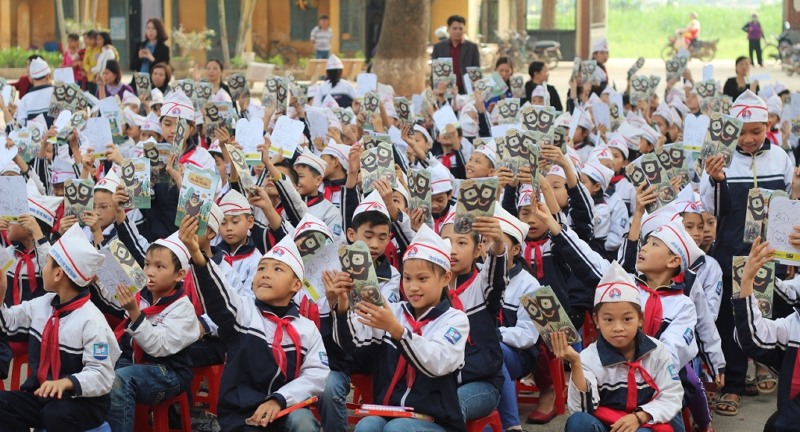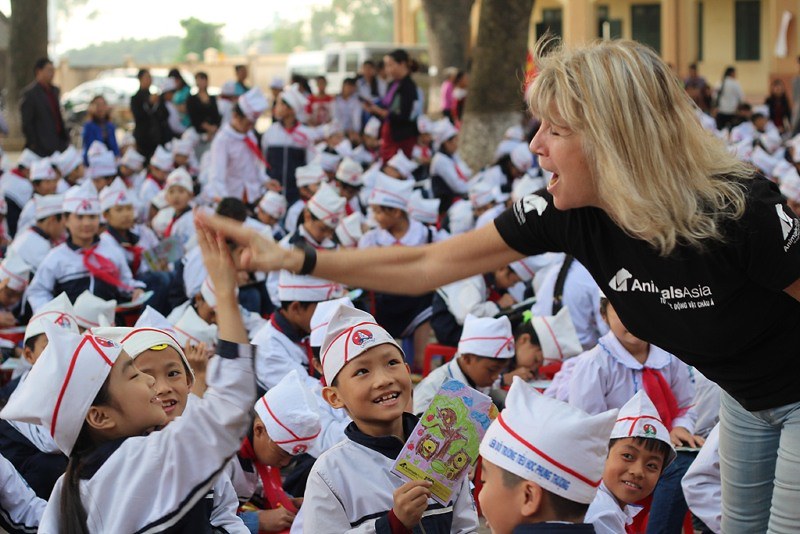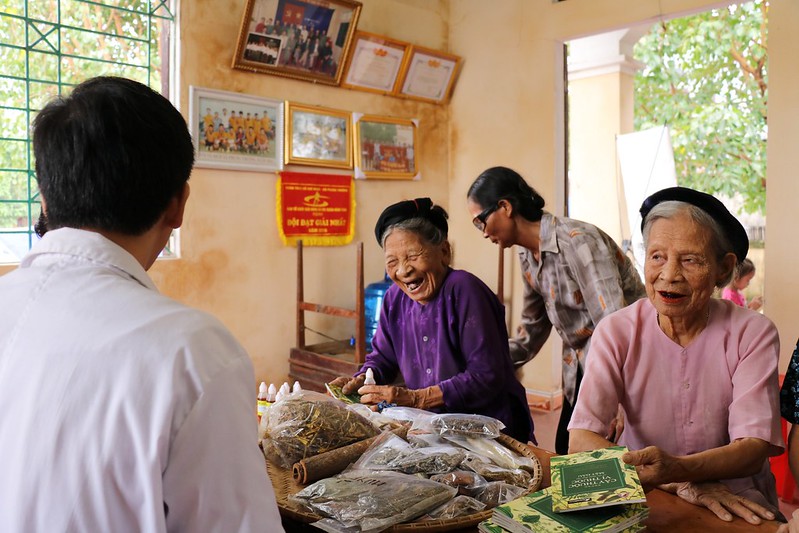PICS: From schools to temples: winning hearts and minds to end bear bile farming in Vietnam
28 July 2017

As Vietnam’s government announces an end to bear bile farming – see how campaigners are working to reduce demand and promote alternatives.
Demand for bear bile has led to poaching, trafficking and extreme cruelty – but traditional medicine practitioners are in agreement, it doesn’t have to be this way.
Their belief chimes with that of the Vietnamese government who recently declared that bear bile farming will end in Vietnam. Cutting demand for bile will help that process.
Working with Animals Asia, traditional medical practitioners have identified 32 herbal alternatives to bile and have committed to completely eliminating its use by 2020.
These images show how the message – that not one more bear need suffer for bile – is being brought from schools to temples across the country.
Teaching the next generation of animal lovers
These young people are the country’s future and by teaching respect and compassion for bears and all animals, we can ensure these children will not grow up to be bear bile users or farmers.
Healing without harm
Phung Thuong village is just a few kilometres across, but it is a bear bile farming hotspot, holding around 200 bears for bile extraction. For people here, bile as a medicine has long been taken for granted – but that is changing. Monthly clinics by trusted traditional medicine practitioners are convincing people of the efficacy of alternatives and the needless cruelty of bile.
Making alternatives the norm

Vietnam’s Traditional Medicine Association has signed an MOU with Animals Asia committing to no longer prescribing bear bile by 2020. To achieve that cruelty-free future, herbal alternatives to bear bile is now an official part of the traditional practitioners syllabus with over 100 doctors trained in their use.
Bringing the message to the people

The message that no bear need suffer for our health must reach people where they are – that is why awareness campaigns have been conducted in village squares and Buddhist temples where ordinary people meet and share information.
BACK









